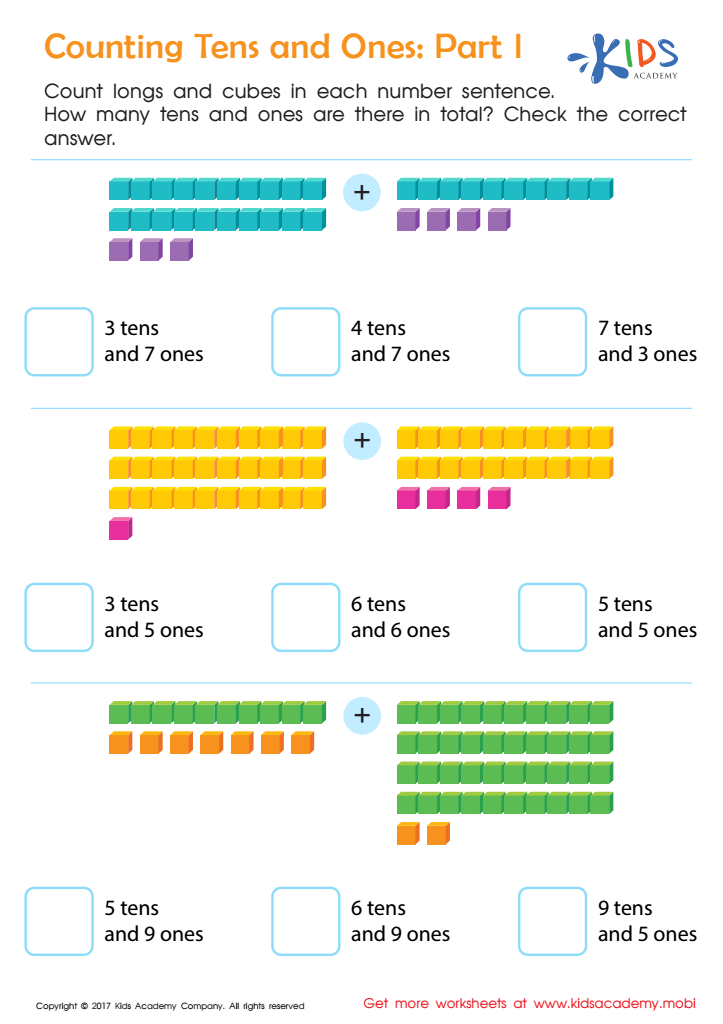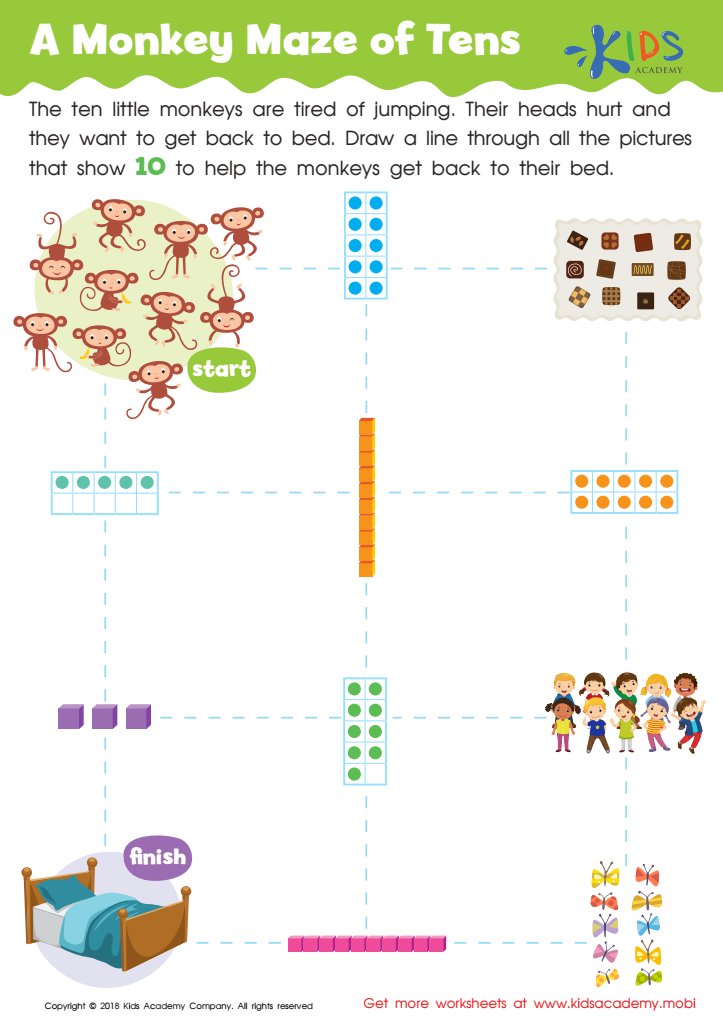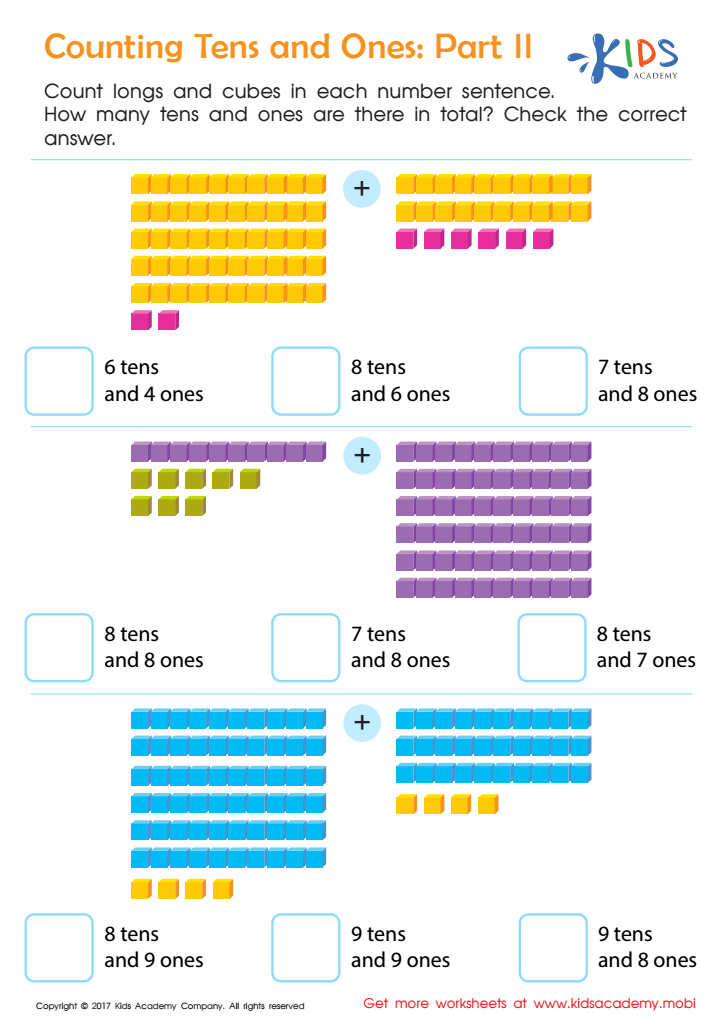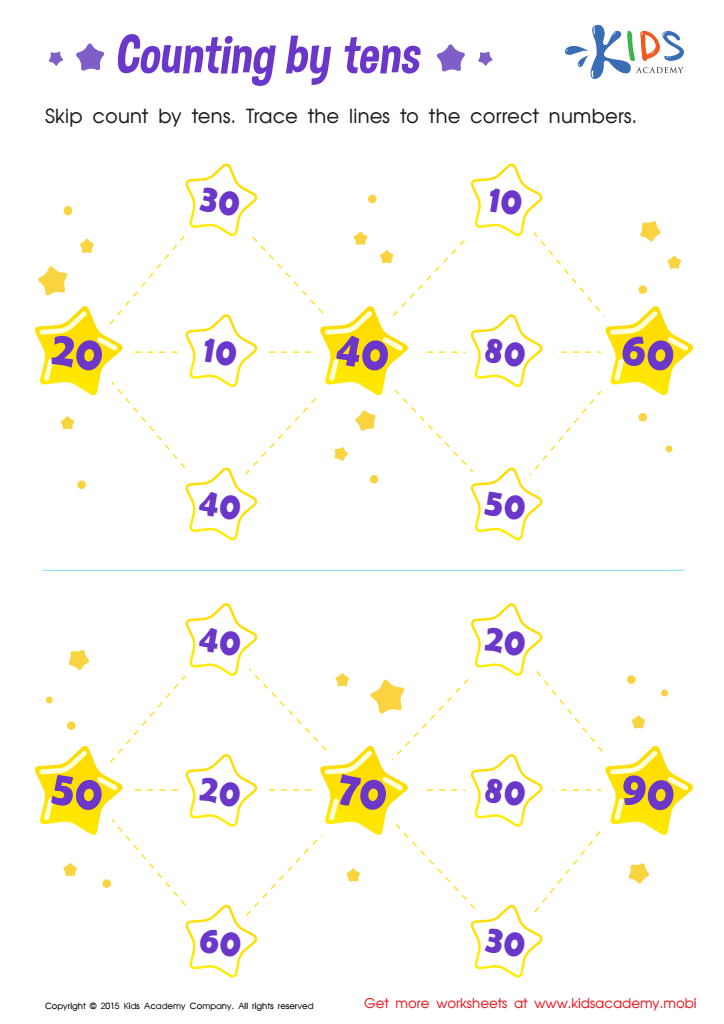Understanding tens Math Worksheets for Ages 6-7
4 filtered results
-
From - To
Enhance your child's math skills with our "Understanding Tens Math Worksheets" designed for ages 6-7. These engaging, printable worksheets help young learners grasp the concept of tens, making the foundational skills of addition and group counting fun and interactive. Children will explore visual representations and practice identifying tens in various formats. Our worksheets are tailored to accommodate different learning styles, ensuring that every child can excel at their own pace. Perfect for classroom use or at-home practice, these resources will build confidence and proficiency in early mathematics. Start your journey to mathematical mastery today with our comprehensive materials!


Counting Tens and Ones: Part 1 Worksheet


A Monkey Maze of Tens Worksheet


Counting Tens and Ones: Part 2 Worksheet


Learn Dozens: Counting by Tens Printable
Understanding tens in math is crucial for children aged 6-7 as it serves as a foundational concept in numeracy. At this age, children start to grasp the base-10 number system, which influences their ability to perform addition, subtraction, and even more complex operations in later grades. A solid grasp of "tens" helps them understand place value, bridging the gap between smaller numbers and larger ones.
Parents and teachers should prioritize this understanding to bolster children’s confidence in math. A strong foundation in tens sets the stage for mastering both single-digit and double-digit arithmetic, which is vital for their academic and everyday life. Discovering patterns (like recognizing that ten ones make a ten) enables kids to develop logical thinking and problem-solving skills.
Additionally, comprehension of tens plays a pivotal role in enhancing reasoning skills and number fluency. This can make classroom learning more engaging and less intimidating for children, as they build a secure knowledge base. By caring about this area of math understanding, parents and teachers are fostering a positive attitude towards mathematics, helping pave the way for future success in the subject and ensuring that children are well-prepared for advanced mathematical concepts. Overall, it’s an investment in their educational journey.
 Assign to My Students
Assign to My Students



















